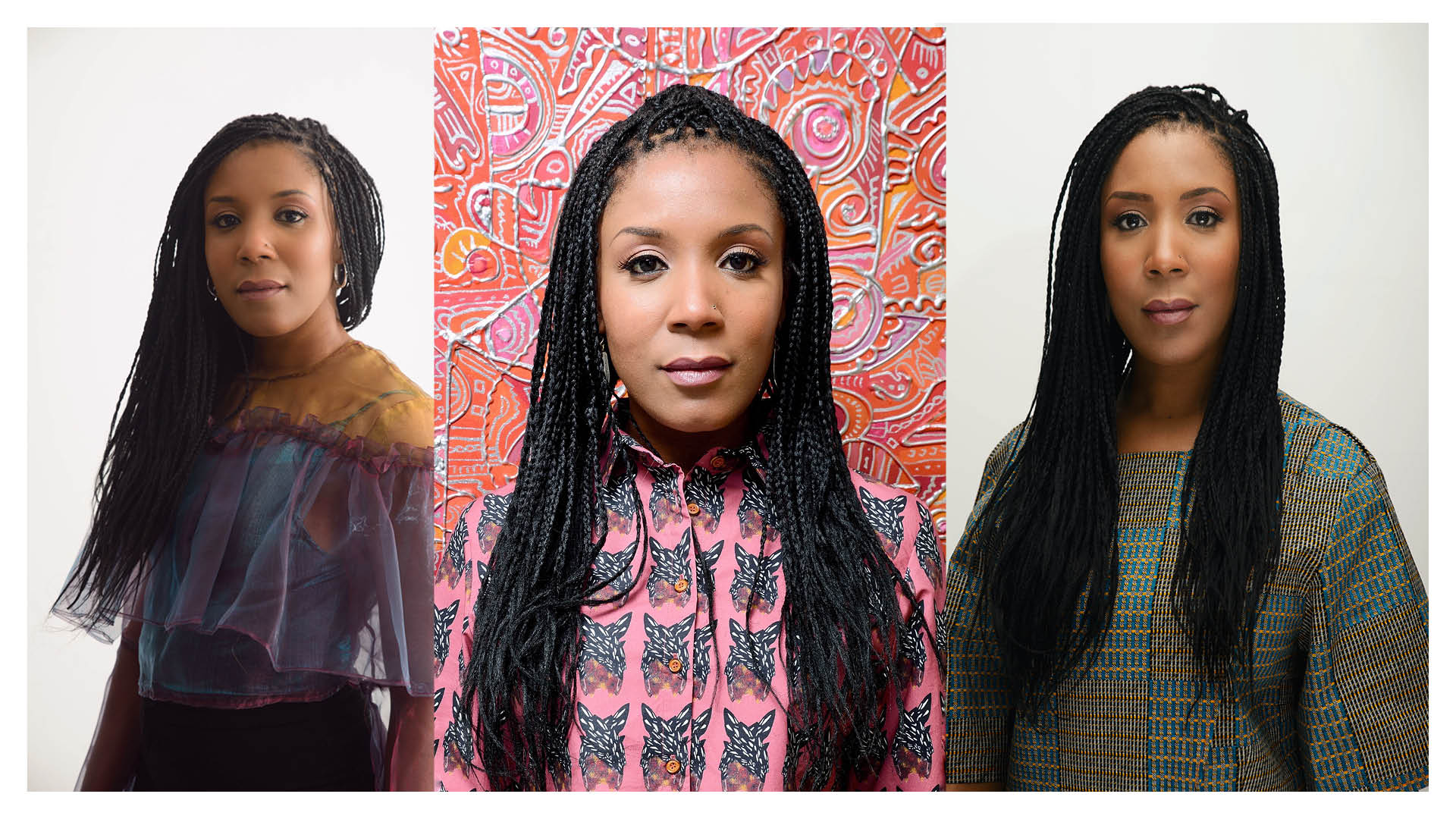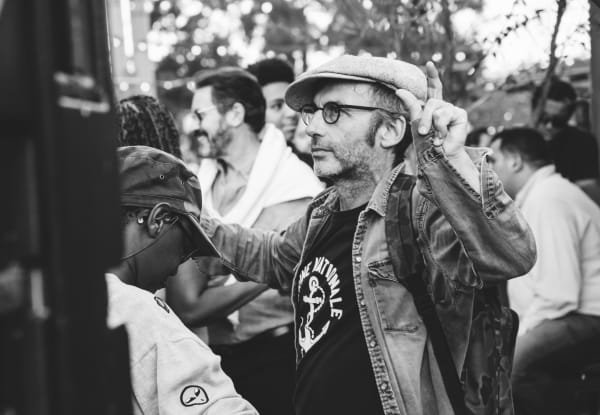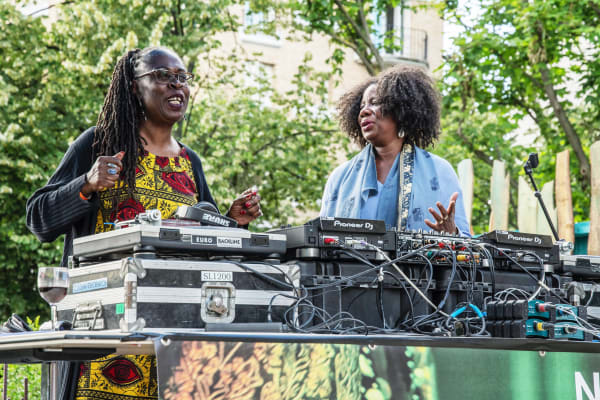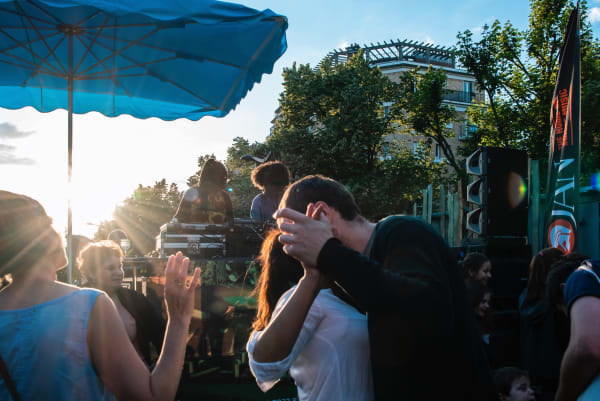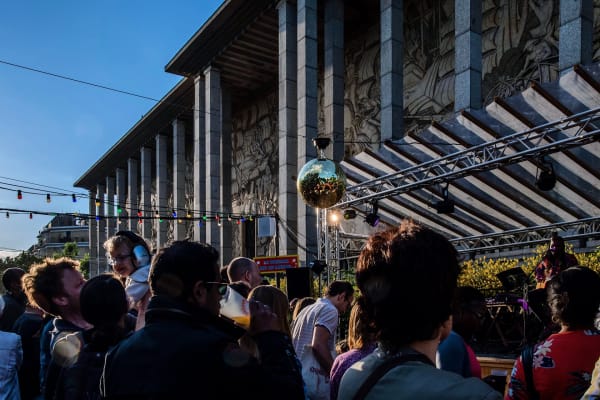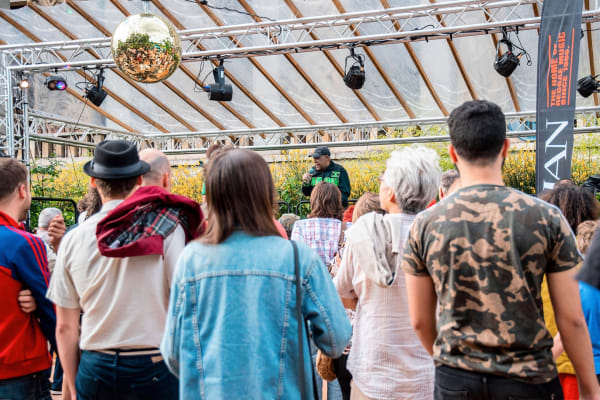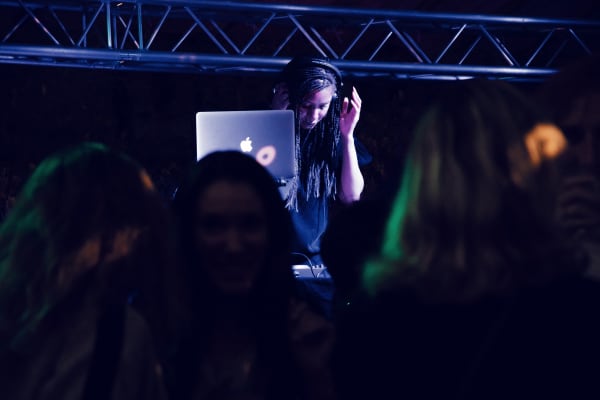We spoke to Karina H Maynard about how her passion for music and the arts, along with different influences have shaped her multi-hyphenate career.
As someone that has a multi-hyphenate career, what does your day-to-day work look like?
My day-to-day work is varied, invigorating and challenges me to maintain a positive growth mindset. My work is seasonal; I work on a select number of large projects throughout the year, alongside consultancy and directorship at the Urdang Academy throughout the academic year.
My curatorial work involves research, planning and development for exhibitions and cultural programmes from 6 months to 4 years in advance. I enjoy this work because I have time and space to indulge in research, establish partnerships and develop large scale creative productions for cultural programmes. I work closely with museums and independent curators, as well as artists and seminal figures. This is the foundation of my work - exploring creative and cultural movements, decolonising narratives, amplifying oppressed histories and documenting living testimonies.
My work in education, including my executive board membership at the Urdang Academy, is structured around the academic year and strategic plans. My motivation is the centreing of student representation, experience and engagement in all aspects of further and higher education provision. At the Urdang Academy, I am Executive Director for Representation and Social Impact. My remit includes developing race, culture and identity programmes for dance and musical theatre students, staff diversity and inclusion training, as well as, policies, admissions, marketing and student societies.
I consult a range of examination boards on decolonisation, curriculum and syllabus. I facilitate Continuing Professional Development training for leadership teams. I am also invited to sit on panels, such as the 2021 One Dance UK Awards judging panel, One Dance UK Decolonising the Dance Curriculum Roundtable, and the UAL Music Performance and Production EDI Group.
All aspects of my work include production and creativity. I produce live shows and events in my curatorial work. An exciting curatorial project was producing cultural programming for the ‘Paris-Londres: Music Migrations (1962-1989)’ exhibition at the Musée de l’immigration at Palais de la Porte Dorée in Paris. I negotiated sponsorship by Trojan Records/BMG, and in partnership with University of Sussex and Leverhulme Trust, I curated and produced a musical festival, film premiere and exhibition talks that featured influential figures and explored the themes of the exhibition.
Other production work includes my role as Head of Strategy, Partnerships and PR for the Black British Theatre Awards on Sky Arts (October 2020), and this year’s live awards at Old Finsbury Town Hall (November 2021).
What key influential factors do you feel have most contributed to your success? Is there anyone that has influenced your career?
Key influential factors that have greatly influenced the trajectory of my career have been my love for music and the arts, interest in people and the world around me, and my desire for positive change.
I have always been interested in cultures and subcultures, how different life experiences shape an individual’s creativity and their societal impact. From my early work as a journalist and communications professional to my present multi-hyphenate career, I have always conducted interviews and spotlighted creators, which includes outstanding talent in the creative arts, and also visionary leaders who work to create the change they want to see in the world - from social justice to education, to the environment and those who inspire others to realise their ambitions.
I had the privilege of an excellent education and the opportunity to explore a wide range of interests as a child. I come from a family that models the value of learning and ambition. My mother ensured I could experience the arts, dance, music lessons, and opportunities to pursue outdoor activities. I collected fiction magazine series, books and my encyclopedias, which as a child were my window into a wide range of topics. My encyclopedias helped nurture a lifelong curiosity about the world. I travelled frequently as a child and spent my early years living abroad, which has taught me the value of cultures, authenticity and diversity.
I have been supported by many people along the way and continue to be inspired by the people I connect with. I have had the opportunity to collaborate with some incredible people over the years. I work closely with Professor Martin Evans on curatorial work at the University of Sussex and in Paris. My first editor Tony Corbin did not only teach me journalism but invaluable skills in teamwork, production and storytelling.
Along with all the inspirational work you do, music is still a huge part of your life. When did you discover your passion for music? Has your passion for music guided your career?
My love for music started at a very young age. I listened to music and collected music before I started school. I took classical piano lessons and played percussion in my school orchestra from age 7. I then started to learn jazz piano, the flute and experimented with other instruments. I started my career in media and communications. In my communications work, I was covering race and equality for organisational change, and I also worked as a freelance journalist for a news agency where I specialised in music and interviews. It was through conducting music interviews over 20 years that I realised a lifelong motivation to understand the creative process, how life experiences shape our distinct identities and the creative potential that is within everyone.
I was a radio DJ for 7 years, and my independent music shows resonated with people within the music industry. I got to experience music from a curatorial angle. I was also able to feature and connect a range of performers, composers and music industry professionals.
Now, music is as important in my life as ever. As director at the Urdang Academy, I get to support the development of dance and musical theatre students at one of the leading conservatoires. I often curate programmes that explore heritage, migration and progress through the prism of music and dance history. It’s a privilege to be able to produce live music shows for exhibitions that attract new, young, creative and diverse audiences. Music is a powerful communicator, connector and elevator. I like to highlight great music, with positive messaging.
Why is the decolonisation of the curriculum, specifically in arts education, important in your opinion?
Decolonisation is essential work to ensure that we look at history, the present and a future through a lens that reflects our current values. It is imperative that we understand how the history of colonisation has shaped every aspect of the world over the past 400 years. Arts education should provide people with the opportunity to develop creatively, which requires a level of honesty and self-exploration that comes from a commitment to understanding ourselves and the experiences of others. Colonial history often objectifies people whose lands were colonised and recounts historical actions, but neglects to critically examine the legacy of colonisation. It’s important to acknowledge the historic erasure of cultures and distortion of narratives to support colonial intentions. Decolonisation enables us to understand where our beliefs come from, develop strong identities not rooted in the degradation of others, and consciously create. I think it’s also important to identify and learn from historical movements that transform societies for the better.
